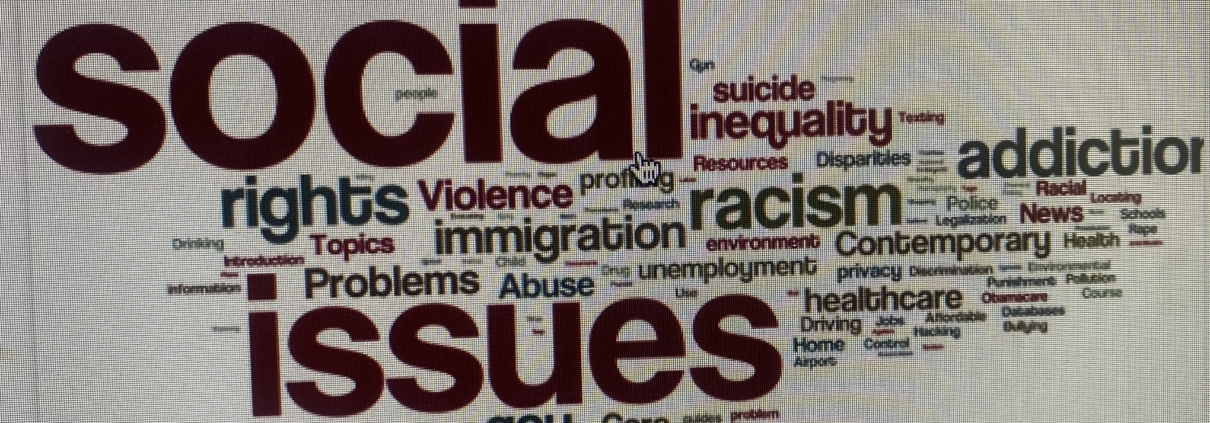Taking a Complexity Perspective on Canada’s Challenges, Part V: Addressing Social Concerns
Most of us are deeply concerned about what is happening in our country and the wider “polycrisis” we face. The question is: what can we do about it?
As I noted in Part I, what happens in our world emerges from the countless interactions between us. These interactions form ever-evolving patterns that shape how we live together. One dominant pattern we discussed in Part II is neoliberalism. If, as I suggested in Part IV, we don’t like who we are becoming, then we need to find ways to change these patterns of relating.
Of course, this is much easier said than done. How often do we react to a disaster by exclaiming: “Didn’t they learn anything from the last one?” In complex systems, cause and effect are not straightforward. We cannot always trace how we arrived here, nor can we be certain which changes will shift the patterns of our collective life in the way we want.
As we saw in Part III, path dependency means we cannot “go back” to some earlier state. Yet patterns are always changing. While we cannot control or predict the future, we can identify areas where attention and action might make a difference.
History offers an example. After WWII, U.S. leaders from both major parties agreed on major reforms: regulating business, creating a basic social safety net, protecting civil rights, investing in infrastructure, and building a rules-based international order. These choices helped create a strong economy and vibrant middle class that lasted until the 1980s, when a coalition of business and religious traditionalists began dismantling that legacy. Their success gave rise to today’s neoliberal order.
The consequences are visible: widening inequality, damaged life chances, poorer population health, and fraying social cohesion. We see these same dynamics in Canada, especially in essential services that have been increasingly handed over to private markets. Housing is perhaps the clearest example: governments retreated, developers dominated, and affordability collapsed. If we want Canada to be a country where prosperity is broadly shared and sustainable, we must begin undoing the damage of privatization—starting with housing.
As Kate Pickett argues in “A Fair Future?”, inequality is not just an economic issue—it is a social, health, and environmental polycrisis that threatens democracy itself. And as Robert Reich observes in Coming Up Short, “the struggle for social justice is the most basic struggle of all because it defines how far a civilization has developed.”
If this is a battle for the soul of our country, then we must choose the battlegrounds carefully. Below are several areas I believe demand urgent attention.
1. Restraining Concentrated Corporate Power
Neoliberal deregulation has fueled the rise of monopolies and oligopolies, granting them outsized political influence and control over media and public discourse. Canada has more safeguards than the U.S., but we cannot assume these will protect us indefinitely.
We need stronger anti-trust legislation and enforcement, a reversal of reckless deregulation, and real protections for workers—including safeguards for pensions. Equally important, we must push back against the privatization of essential functions where market concentration undermines the public good. Whether in finance, energy, or transportation, critical services should not be left solely to private actors whose main obligation is shareholder profit.
We must also be far more vigilant about foreign takeovers of Canadian companies and resources. Economic sovereignty is not an abstract idea—it is the foundation of our independence. Allowing multinational corporations to dominate key sectors of our economy weakens our ability to shape our own future and leaves us vulnerable to external pressures.
2. Strengthening Public Institutions
A healthy democracy requires strong public spaces. Reinvesting in the CBC should be a priority so it can represent Canadian interests, fact-check misinformation, and strengthen civic identity.
This same principle applies more broadly: public institutions must be rebuilt where privatization has hollowed them out. When governments outsource or offload essential responsibilities—from long-term care to transit—they weaken both accountability and resilience. Restoring public capacity is a key step in rebalancing our democracy.
3. Reducing Inequality
Research shows high inequality undermines social trust, public health, and democracy itself. It is time to take bold steps.
• Universal Basic Income (UBI): Instead of a costly and punitive patchwork of supports, UBI would provide a fairer, more efficient safety net.
• Fairer Taxation: Canada should enact a minimum tax on the super-rich. Evidence shows billionaires and centi-millionaires often pay proportionately less tax than ordinary citizens while contributing disproportionately to the climate crisis.
Revenue from wealth taxes will be essential for the major investments Canada needs, from military commitments to social infrastructure. But we must not fall into the neoliberal trap of austerity and privatization, which download costs onto individuals while eroding the shared services that make societies livable.
4. Undoing the Privatization of Essential Services: Starting with Housing
One of neoliberalism’s most damaging legacies has been the privatization of essential services—from health care to transportation to housing. While many of these shifts cannot be reversed quickly, housing is a critical place to start.
For decades, governments have relied on private developers to solve the housing crisis, offering subsidies and faster approvals in the hope that supply would eventually lower prices. The result? Rising costs, limited affordability, and a deepening crisis. The “trickle down” logic has failed us.
The federal government’s Build Canada Homes proposal is a step in the right direction, but we must go further. Government should re-enter the housing sector directly—funding non-market approaches such as co-ops, community land trusts, and social enterprises. These models not only deliver more affordable housing but also strengthen communities and civic capacity.
If we are serious about reversing neoliberalism, housing is the place to begin. It is both an urgent social need and a proving ground for rebuilding the public role in essential services.
5. Exploring National Service
Another idea worth serious consideration is a National Service initiative for youth, as outlined by David McLaughlin in his article “Building Citizenship Through National Service.” Such programs could strengthen civic identity, provide valuable skills, and reinforce our shared commitment to Canada’s future.
Looking Ahead
These are heavy lifts. But the question remains: if not now, when? The longer we wait, the harder it will be to undo the damage neoliberalism has inflicted.
I have not addressed here the often-touted cuts to the public sector. While reform is needed, such measures will not yield the savings required for true independence from the U.S. In fact, they risk distracting us from the larger task.
In Part VI—the final installment—I will take up this issue and share some closing reflections on what it will take to move Canada forward.









